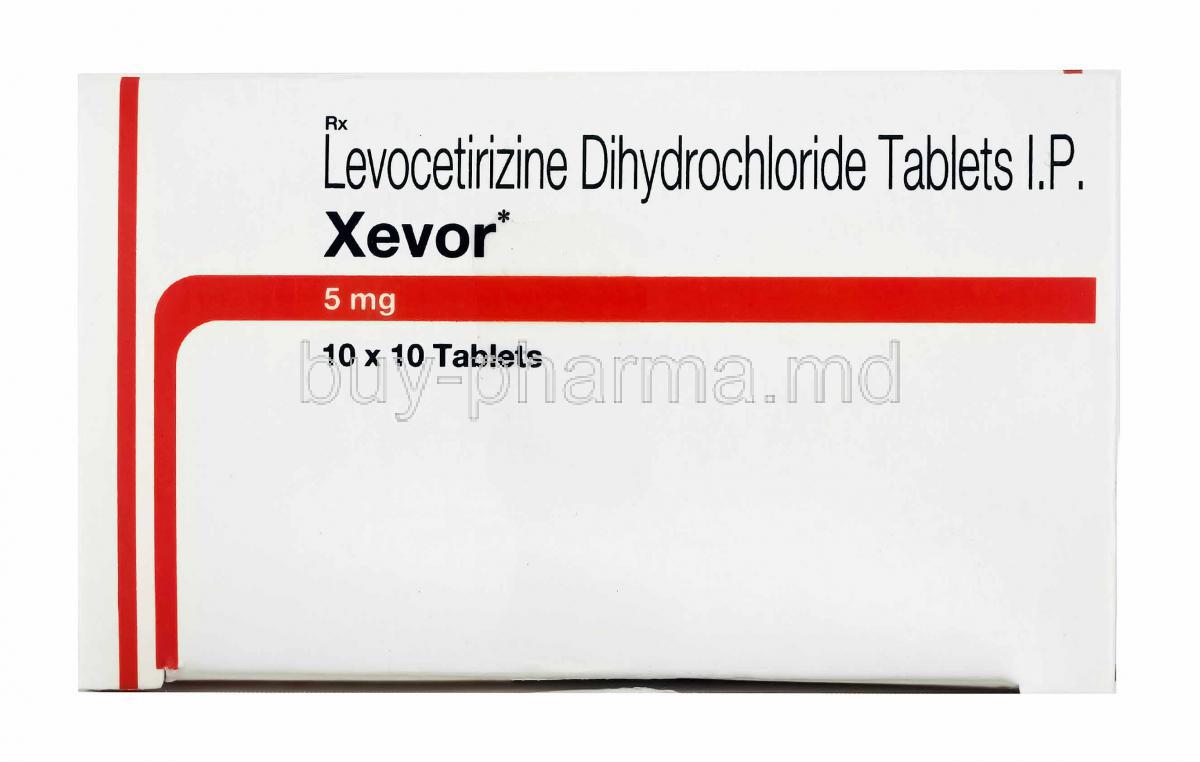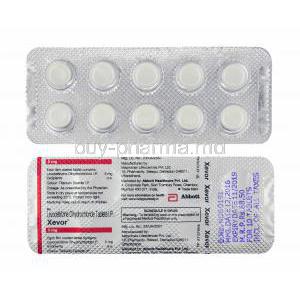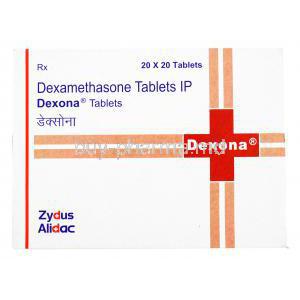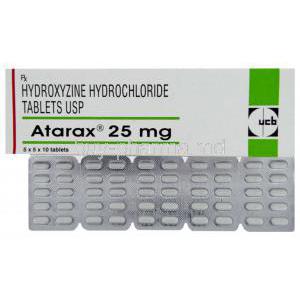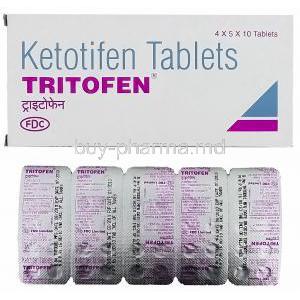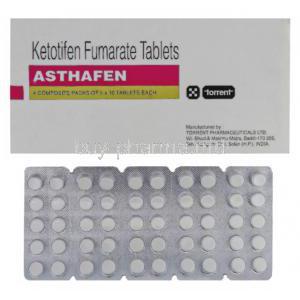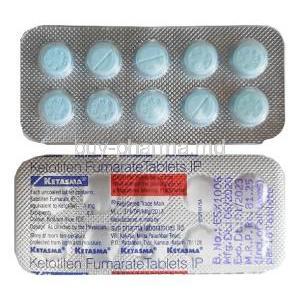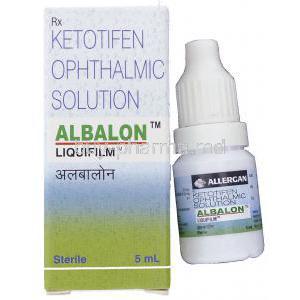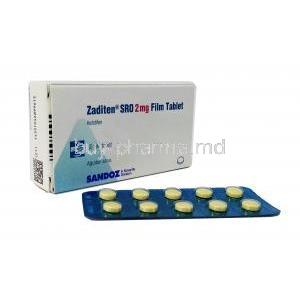Xevor, Levocetirizine
- Introduction
- Overview of Xevor and Levocetirizine
- Composition and Formulation
- Levocetirizine Mechanism of Action
- Medical Uses and Indications
- Off-Label Uses
- Dosage and Administration
- Administration in Special Populations
- Levocetirizine Side Effects
- Levocetirizine Long-Term Side Effects
- Levocetirizine Interactions
- Contraindications
- Warnings and Precautions
- Careful Administration Guidelines
- Important Precautions in Daily Use
- Overdosage
- Handling and Storage
Introduction
Levocetirizine is commonly known as Xevor. It plays a role in allergy treatment by acting as a reliable antihistamine for conditions like allergic rhinitis and urticaria that affect individuals with hypersensitivity disorders. Medical professionals highly regard its effectiveness in managing allergies due to its safety and long-term benefits that help patients experience quality of life by providing both short-term relief and sustained control of symptoms.
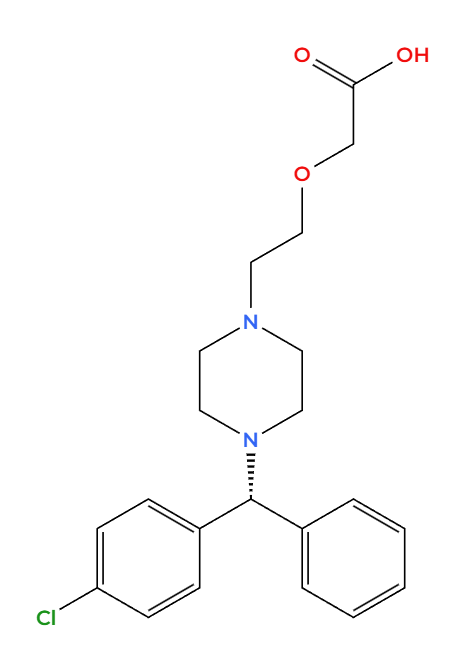
Overview of Xevor and Levocetirizine
Levocetirizine is a second-generation antihistamine, making it different from older, first-generation options. It's highly effective at treating allergic reactions but does so without causing drowsiness or affecting your daily activities. This is especially important for people who suffer from chronic or seasonal allergies and need consistent relief. By blocking the body's response to histamine, levocetirizine provides symptom relief for all levels of allergy severity.
Composition and Formulation
Xevors' pharmacological basis centers around Levocetirizine dihydrochloride as its component. Flexible formulations cater to patient requirements and choices.
- The liquid form provides convenience for kids and individuals facing challenges with swallowing.
- Rapidly dissolving tablets designed to break in water.

- Different packaging choices frequently differ in the strengths they offer, as 5 mg units designed for usage are available options.
- Blister packs alongside bottles and dose sachets promote adherence by providing convenience and easy access for users to follow through with their regimen.
Levocetirizine vs Benadryl
Benadryl, with diphenhydramine, falls under the group of antihistamines known for their sedative effects that can affect daily tasks negatively. On the other hand, Levocetirizine targets receptors while reducing drowsiness and maintaining its effectiveness against allergies. For individuals needing to stay alert during the day, Levocetirizine is usually the choice.
Levocetirizine vs Cetirizine
The medication cetirizine contains both less active isomers from which levocetirizine is derived, as it isolates the enantiomer for enhanced therapeutic precision and reduced adverse effects, at lower doses compared to its predecessor, based on clinical evidence indicating improved tolerability in sensitive individuals.
Levocetirizine Mechanism of Action
Levocetirizine works by blocking the H1 histamine receptors in your body. By doing this, it stops histamine from causing a chain reaction of inflammatory effects like swelling, itching, and increased mucus.
This action provides several key benefits:
- It reduces nasal congestion, runny nose, and sneezing.
- It relieves itchy, watery eyes from allergic conjunctivitis.
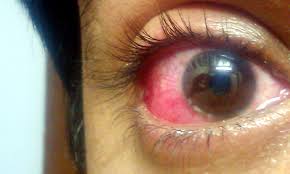
- It soothes skin symptoms like hives and redness.
The medication works quickly, often providing noticeable relief within an hour, and its effects last for up to 24 hours. This allows for a convenient once-daily dose, making it a reliable and effective treatment for allergies.
Medical Uses and Indications
Levocetirizine is a proven antihistamine that effectively treats a wide range of allergy symptoms. It provides reliable relief for both short- and long-term allergies without causing significant drowsiness, so it won't interfere with your daily routine. Its effectiveness and safety are well-supported by evidence.
Treatment of Seasonal Allergic Rhinitis (Hay Fever)
When pollen counts are high, allergies can cause severe symptoms that disrupt sleep and daily life. Levocetirizine offers continuous relief by stopping the histamine reactions that cause a runny nose, sneezing, and irritated eyes.
- It quickly relieves nasal congestion.
- It reduces eye redness and watering.
The medication helps patients feel better and get back to their normal routines. Since you only need to take it once a day, it's easy to stick to your treatment plan, especially during peak allergy season.
Relief of Perennial Allergic Rhinitis
Unlike seasonal allergies, perennial allergic rhinitis lasts all year and is triggered by allergens like dust mites and pet dander. Because of its constant nature, the condition can be particularly bothersome, causing ongoing congestion, throat irritation, and an itchy nose.
Levocetirizine provides continuous relief from these symptoms, which can lead to:
- Better sleep, with fewer disturbances from symptoms.
- Improved quality of life, by managing persistent discomfort.
- Reduced constant irritation in the nose and throat.
Management of Chronic Idiopathic Urticaria (Hives)
For people with chronic Idiopathic Urticaria or hives, levocetirizine can help by reducing the frequency and severity of flare-ups. It works by controlling histamine at the skin's receptor sites, which not only relieves symptoms but also gives patients more predictable, peaceful skin.
The key benefits include:
- Less skin swelling.
- Less intense itching, which leads to better sleep.
- Improved emotional well-being because their skin looks and feels better.
Symptom Relief for Nasal Congestion, Sneezing, Itchy Eyes, and Throat
Levocetirizine is a versatile allergy medication that provides complete relief from a wide range of symptoms. It effectively treats everything from nasal congestion and sneezing to itchy eyes and a sore throat.
Patients often report not only a decrease in their symptoms but also an overall improved feeling of energy and well-being. This broad-spectrum relief makes levocetirizine a key tool in modern allergy management. It works by:
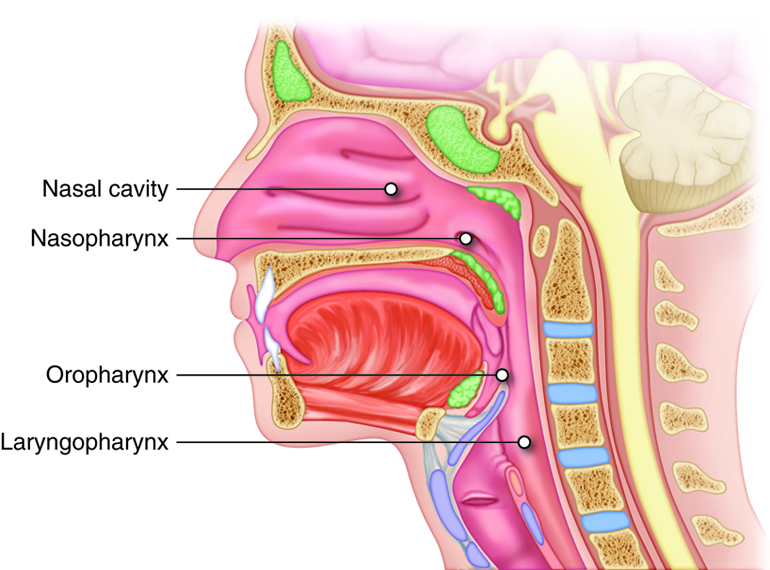
- Calming eye inflammation and reducing watering.
- Soothing throat irritation caused by post-nasal drip.
Off-Label Uses
Doctors sometimes use levocetirizine to treat conditions where histamine is causing a patient's discomfort, even if it's not a formally approved use. In cases where standard treatments haven't worked, a doctor might consider these "off-label" applications, carefully weighing the potential benefits against the risks.
Adjunct in Atopic Dermatitis Management
Atopic dermatitis (eczema) causes inflamed, itchy, and dry skin that can disrupt sleep. While topical steroids are the main treatment, doctors sometimes use levocetirizine as a supplemental therapy. It helps reduce itching and nighttime scratching by blocking the effects of histamine on the skin, which can improve sleep and help patients stick to their treatment plan.
Use in Allergic Conjunctivitis
When histamine is released in the eyes, it can cause redness, itching, and excessive tearing. If topical antihistamines aren't enough, levocetirizine can provide additional relief for the treatment of allergic conjunctivitis, even though you take it orally. This medicine helps reduce the redness in your eyes and lessens discomfort on the surface, which is especially helpful for people with rhinitis.
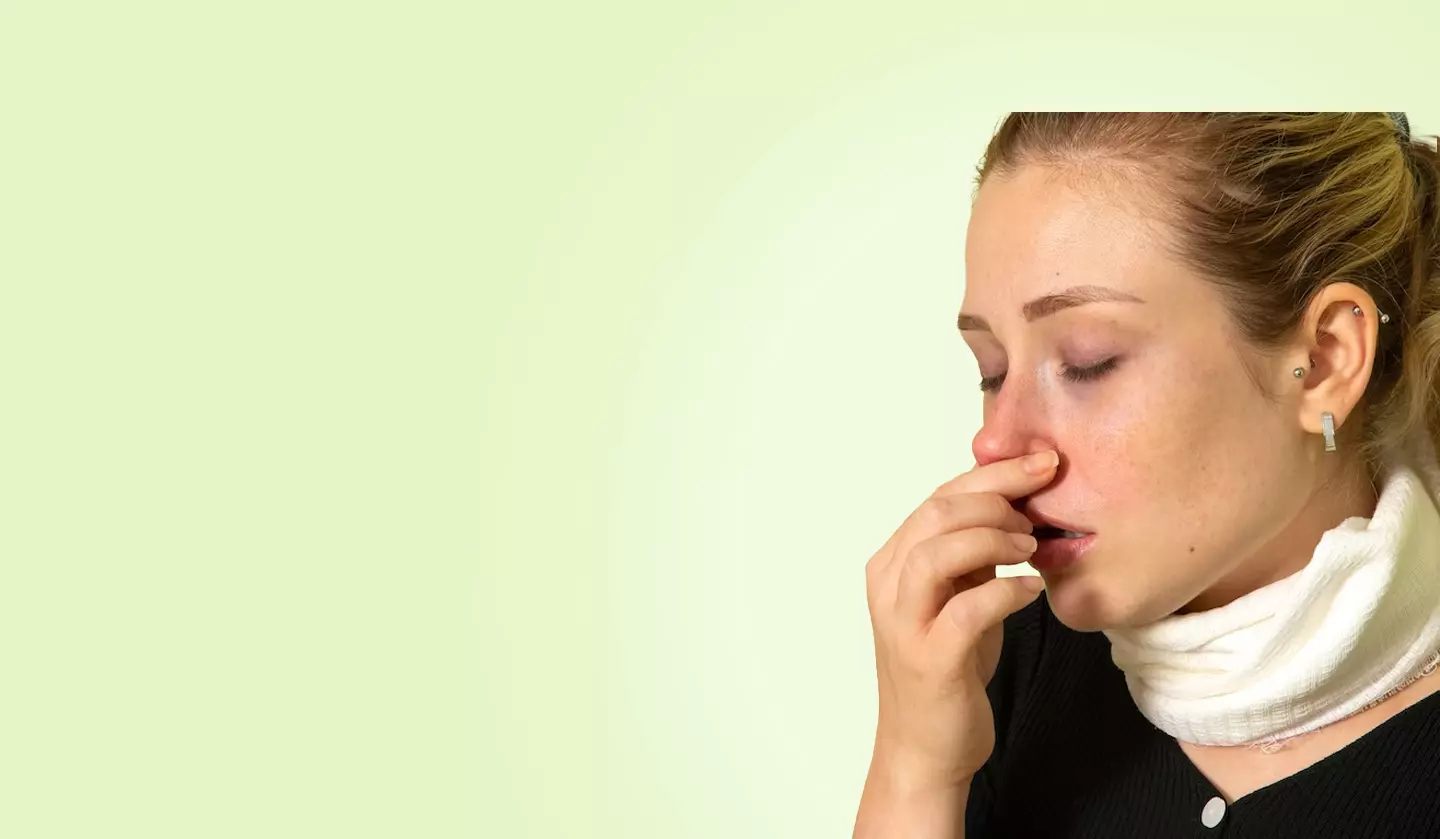
Application in Asthma-Related Allergy Symptoms
While levocetirizine isn't a direct treatment for asthma, it can help people who have asthma and allergies. By controlling the histamine-triggered inflammation that allergens cause in the airways, the medication may help reduce symptoms like throat irritation, a runny nose, and coughing. It's important to remember that levocetirizine should be used in addition to asthma treatments, not as a replacement for them.
Potential Role in Chronic Pruritus of Non-Allergic Origin
Chronic itching can be a symptom of a wide range of issues, including kidney failure, liver disease, or unexplained skin conditions. Since this type of itching isn't always caused by histamine, typical allergy medications may not work.
However, levocetirizine can still offer some relief by helping to reduce the itch signals in the body. This can lead to better sleep and less skin damage from scratching. While more research is needed, these uses show that levocetirizine may have a broader therapeutic benefit beyond just treating allergies.
Dosage and Administration
Levocetirizine is an antihistamine that's dosed carefully to maximize its benefits while minimizing risks. The dosage is adjusted for a person's age and health to effectively treat allergies and itching.
Standard Recommended Dosage for Adults and Adolescents
For adults and adolescents 12 years and older, the usual dose of levocetirizine is 5 mg once a day. This single daily dose provides 24-hour relief from allergies and helps ensure steady levels of the medication in your body. It can be taken in the morning or evening, and for those who can't swallow pills, an oral solution is also available.

Pediatric Dosing Guidelines
For children, levocetirizine dosages are based on their age and weight.
- For kids 6 to 11 years old, the typical dose is 2.5 mg once daily.
- For children 2 to 6 years old, a 1.25 mg solution is recommended twice a day to ensure consistent treatment.
The liquid formula makes it easier to give a precise dose. It's not usually recommended for infants and children under 2 unless a doctor is closely monitoring them.
Levocetirizine Maximum Dose
For adults, the highest recommended daily dose of levocetirizine is 5 mg. Taking more than this won't make the medication more effective but will significantly increase the risk of side effects like drowsiness and fatigue. Sticking to this limit is essential for staying safe.
Adjustments for Renal Impairment
Your kidneys play a key role in removing levocetirizine from your body, so if your kidney function is impaired, you'll need to adjust your dose.
- If you have mild kidney problems, you can usually take the standard dose.
- For moderate impairment, the dose should be reduced to 2.5 mg once a day.
- In cases of severe impairment, the dose may be further lowered to 2.5 mg every other day.
- If you have end-stage renal disease, the medication is generally not recommended.
Adjusting the dose helps prevent the drug from building up in your system and causing toxicity.
Administration Guidelines with or without Food
Levocetirizine can be taken with or without food, as meals do not affect its absorption. For best results, tablets should be swallowed with water. For those who have trouble with pills, such as children, an oral solution or dispersible tablets are good alternatives.
Taking the medication at a consistent time each day can help you predict when you'll feel relief. Taking it in the evening may also help reduce any daytime drowsiness. Lastly, remember to stay hydrated while you're taking this medication.
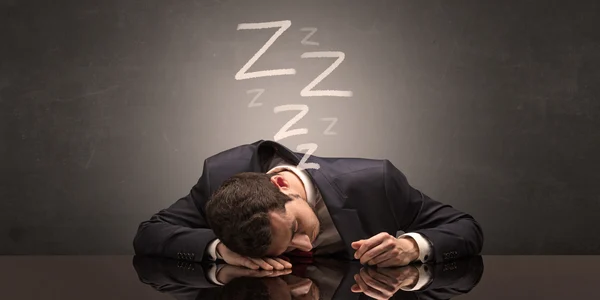
Administration in Special Populations
Elderly Patients
As people get older, their bodies change, and their ability to remove medications from their system can decrease due to reduced kidney function. This can cause drug levels to build up in the bloodstream, even if the medication itself works the same way.
To prevent this, it's important to:
- First, check kidney function before starting the medication.
- Adjust the dosage based on creatinine clearance, a measure of kidney health.
- Monitor the patient to reduce the risk of side effects like sedation or mental fogginess.
Pregnant Women and Nursing Mothers
While studies suggest that levocetirizine does not increase the risk of birth defects, it should be used with caution during pregnancy and only when the benefits to the mother outweigh any potential risk to the baby. Since the medication can pass into breast milk, nursing mothers should also be aware that their baby could be exposed to the drug.
Pediatric Use
Levocetirizine is approved for use in children as young as two years old. It comes as a liquid for children ages 2 to 5 and a tablet for those 6 and older.
- Extensive clinical studies have confirmed that the medication is safe and effective in this age group.
- By relieving allergy symptoms like rhinitis and hives, it helps reduce the impact on a child's daily activities and sleep.
- To ensure the best results, it's important to use the correct dose and formulation for a child's age.
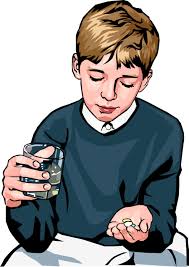
Levocetirizine Side Effects
While levocetirizine is generally well-tolerated, some people may experience side effects. These reactions can vary in severity and may depend on factors like the dose, how long you take it, and your individual sensitivity. Understanding these potential effects is important for ensuring the treatment is both safe and effective.
Common Side Effects
Although levocetirizine is a non-drowsy antihistamine, some people may still experience mild side effects, which often lessen as the body adjusts to the medication.
Common side effects include:
- Drowsiness and fatigue: Some patients may feel tired or sleepy, which can affect their concentration.
- Dry mouth: Reduced saliva can cause discomfort, increased thirst, and, with long-term use, potential dental issues.
- Headache: This is a common and usually mild side effect related to the central nervous system.

- Nasal and throat irritation: Symptoms like mild congestion or an itchy throat can occur but typically go away on their own.
Less Common but Notable Side Effects
Although less common, some side effects of levocetirizine may be more serious and require medical attention if they are severe or don't go away.
- Stomach pain, nausea, or diarrhea can occur and may affect your appetite and digestion.
- Heart palpitations or a rapid heartbeat are rare but possible side effects, especially in sensitive people.
- Allergic reactions, such as a rash, itching, or hives, can be a sign of a sensitivity to the medication or its ingredients.
Levocetirizine Long-Term Side Effects
Long-term use of levocetirizine is generally considered safe under a doctor's supervision. However, rare side effects have been reported, especially in people with pre-existing conditions or those taking very high doses. It's important to be aware of these potential risks to ensure proper management during extended treatment.
- Severe allergic reactions: Although rare, severe reactions like anaphylaxis (a life-threatening allergic reaction) and angioedema (swelling under the skin) have been reported. If these occur, you must stop the medication and seek immediate medical help.

- Seizures: In rare cases, people who are prone to seizures may be at risk because the medication can affect the brain's nerve activity.
- Severe drowsiness: Although uncommon, severe drowsiness can occur and may impact your ability to perform daily tasks. If this happens, your treatment plan may need to be reevaluated.
Despite its strong safety record, your doctor should regularly check on you to ensure the medication is still the right choice for your needs.
Levocetirizine Interactions
While levocetirizine doesn't have many drug interactions, it's important to be careful when taking it with other substances that can affect your central nervous system or brain activity. The combination could lead to increased drowsiness or a higher risk of seizures, so it's essential to monitor your medication use closely.
Interaction with Alcohol and CNS Depressants
Combining levocetirizine with alcohol can increase the sedative effects on your central nervous system, which may subtly impact your alertness and reaction time over time. This can lead to a gradual decline in your ability to perform tasks and could be a safety concern, especially when driving or operating machinery.
Interaction with Sedatives and Anxiolytics
When levocetirizine is taken with certain medications that affect the nervous system, such as benzodiazepines (like Xanax) or barbiturates, it can increase the risk of side effects like excessive sedation. This combination can lead to a greater chance of feeling dizzy, tired, and uncoordinated, which can increase the risk of falls, especially in the elderly or frail. To reduce these risks, doctors may recommend using lower doses or exploring non-sedative treatment options.
Possible Influence on Antiepileptic Drugs
While levocetirizine doesn't often interact with other medications in terms of how they're processed by the body, it's still important to consider how they work together. For people with a history of seizures, antihistamines may affect their seizure risk. If you have unstable or poorly controlled epilepsy, your doctor should monitor you closely.
- Monitor for any changes when you start or adjust your dosage.
- If any new neurological symptoms appear, review your medications with your doctor.
- Having both an allergist and a neurologist on your care team can lead to better outcomes.

Impact on Laboratory Test Results
Antihistamines can affect the results of certain allergy skin tests. To ensure accurate results, it's essential to stop taking antihistamines according to your doctor's instructions before the test. This allows your body's natural histamine response to return to normal.
Make sure to note the last time you took your medication before any skin-prick or intradermal tests. The good news is that antihistamines typically have very little effect on standard blood and chemistry tests.
Contraindications
In some situations, the potential for harm from a medication outweighs any possible benefits. These situations are called contraindications. They can be either absolute, meaning the medication should never be used, or relative, meaning it should be used with extreme caution. A careful review of these factors is crucial to prevent bad outcomes.
Known Hypersensitivity to Levocetirizine or Related Antihistamines
If you've had a severe allergic reaction to levocetirizine or a similar antihistamine in the past, you should not take it again. A second exposure could cause a quick and serious allergic reaction. Be aware that you may also be sensitive to other antihistamines in the same class, such as piperazines.
Severe Renal Impairment
Since your body mainly gets rid of levocetirizine through the kidneys, the medication can build up in your system if you have kidney disease or reduced kidney function. This buildup can lead to a higher risk of side effects. For this reason, the dosage must be significantly reduced if you have a kidney condition.
Levocetirizine and Alcohol
Although it's not a strict contraindication, you should avoid drinking alcohol while taking levocetirizine. The combination can significantly affect your coordination and judgment, which can put both you and others at risk. It's especially important to avoid alcohol when you first start the medication.
Before starting treatment, talk to your doctor about your drinking habits, especially if you have a job where alertness is critical.

History of Severe Allergic Reactions to Similar Agents
If you've had a bad reaction to one antihistamine, it's best to avoid others that are structurally similar. Your body might have a similar response to related compounds, so a doctor might recommend you see an allergist to find a different type of medication that won't cause a reaction.
Warnings and Precautions
It's crucial to tailor precautions to each individual's unique health situation. The goal is to find a balance between effectiveness and safety, making small adjustments that can lead to significant improvements in a patient's well-being.
Risk of Sedation and Impaired Psychomotor Performance
While levocetirizine is classified as non-sedating, some people may still feel drowsy, especially at higher doses or when combined with alcohol or other sedatives.
If you find yourself feeling drowsy, try taking the medication in the evening. If you are very sensitive to sedatives, your doctor may recommend a lower dose or a different medication entirely.
Use in Patients with Hepatic and Renal Impairment
Your kidneys are the main way your body clears levocetirizine, so liver problems usually don't require a dose change. However, if both your kidney and liver functions are compromised, it can be more difficult for your body to process the medication.
To ensure safety, it's important to:
- Check your creatinine clearance to determine the correct dosage.
- Watch for signs of drug buildup, such as fatigue or disorientation.

- Reevaluate your dose after any illness or dehydration.
Precautions in Patients with Epilepsy or Seizure Disorders
In people who are prone to seizures, antihistamines can subtly affect brain activity and increase the risk of a seizure. While this risk is minor, it's significant for anyone with unstable epilepsy. It's important to coordinate with a neurologist and for patients to be aware of the signs to watch for and report them to their doctor.
Careful Administration Guidelines
When giving levocetirizine to patients with health conditions or high sensitivity, it is essential to tailor the treatment to their specific needs. By closely monitoring them and providing careful guidance, doctors can minimize potential issues and ensure the medication works effectively and safely.
Monitoring in Patients with Urinary Retention Risk
If a patient has conditions like prostate hyperplasia or spinal cord lesions that might cause urinary retention, they should be monitored closely. Antihistamines can worsen the ability to empty the bladder, which may lead to discomfort and complications. It's important to regularly monitor urine output and frequency and to discuss any changes in urinary symptoms during appointments.

Considerations for Patients with Cardiovascular Disease
Although levocetirizine is not typically linked to heart problems, you should be cautious if you have a pre-existing condition like an arrhythmia (irregular heartbeat) or ischemic heart disease. In rare cases, the medication can cause palpitations or a rapid heartbeat, which could worsen these conditions.
It's a good idea to have a baseline heart health assessment before starting the medication and to work with your cardiology team to adjust the treatment as needed.
Avoidance of Alcohol During Therapy
Drinking alcohol while taking levocetirizine can increase its sedative effects. Even a small amount of alcohol can magnify drowsiness and impair your judgment, so it's best to avoid it completely during treatment. This will help ensure your safety, especially when driving or operating machinery, and prevent unexpected impairment of your reflexes and concentration.
Important Precautions in Daily Use
To keep patients safe, it's crucial to pay close attention to their daily routines and any other substances they might be using at the same time. Following established safety habits and guidelines is essential for protecting their well-being.
Driving and Operating Machinery Warnings
Even when taken at the recommended dose, levocetirizine can cause drowsiness in some people. You should not drive or operate machinery until you know how the medication affects you and your alertness returns to normal.
Be especially careful when commuting or working long shifts. If you feel excessively sleepy during the day, it's important to talk to your doctor.
Avoidance of Concomitant Sedative Drugs without Medical Advice
Mixing Levocetirizine with benzodiazepines or other sleep aids and pain relievers can increase the impact on the system and lead to greater drowsiness and sedation levels; it's crucial to consult a healthcare professional before considering such combinations, for safety reasons.
- The likelihood of sedation decreasing
- The importance of promoting polypharmacy practices in patients with conditions.

Guidance on Missed Doses
Always try to take your medication at the same time each day. If you miss a dose, take it as soon as you remember, unless it's almost time for your next one. Never double up on doses to make up for a missed one, as this can increase side effects without providing extra benefit. Just skip the missed dose and continue with your regular schedule.
Overdosage
Excessive consumption of Levocetirizine may lead to symptoms affecting the system, necessitating immediate intervention to prevent potential complications that may arise from it.
Symptoms of Overdose: Drowsiness, Restlessness, Confusion
The symptoms of this toxicity can vary with age. While adults might experience drowsiness, children could show contradictory signs like restlessness or agitation.
Emergency Management and Supportive Treatment
Since there's no specific antidote for this, treatment focuses on supportive care and close monitoring. The most important things are to immediately stabilize the patient's airway, breathing, and circulation, and then manage symptoms as they appear. Healthcare providers will meticulously watch the patient's vital signs, level of consciousness, and hydration. For severe or uncertain cases, hospitalization is necessary.
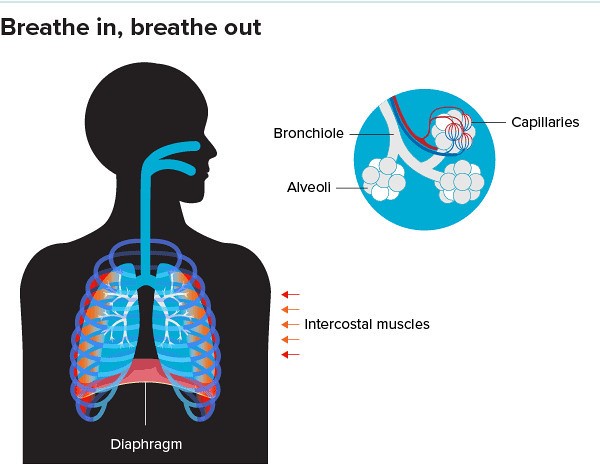
Role of Gastric Lavage and Activated Charcoal
Following an oral ingestion of a toxic substance, doctors may consider performing gastric lavage in a controlled medical setting. To reduce the amount of the substance absorbed by the body, activated charcoal can be administered if done so promptly. Once this initial treatment is complete, further efforts to remove toxins are typically supportive. While dialysis is an option for certain cases, its effectiveness may be limited.
Handling and Storage
Preserving potency and ensuring safety are crucial when handling and storing medications correctly. It is important to advise patients on the impact of environmental factors and the importance of adhering to expiration timelines.
Proper Storage Conditions (Temperature and Humidity)
Store levocetirizine in a cool, dry place, out of direct light. The best temperature is between 15°C and 30°C. Keep the container tightly closed in its original packaging and avoid humid places like bathrooms, as moisture can degrade the tablets. Unless your doctor tells you to, do not refrigerate it.
Shelf Life and Packaging Integrity
All levocetirizine packages have an expiration date that you must respect. Do not use the medication if you notice any discoloration or a strange odor, or if the seal on the package is broken. You should always check the package for signs of tampering or damage when you buy it. Replace any expired or damaged medication to make sure it's effective and safe to use.
Safe Handling and Disposal of Unused Medication
Leftover levocetirizine should be thrown out in a way that prevents it from being misused or accidentally taken. Don't flush it down the toilet or sink, as this can harm the environment. The safest option is to use a local pharmacy's take-back program. If this isn't an option, put the medication in a sealed container and follow your local guidelines for disposing of pharmaceutical waste. Always keep the medication away from children and pets.
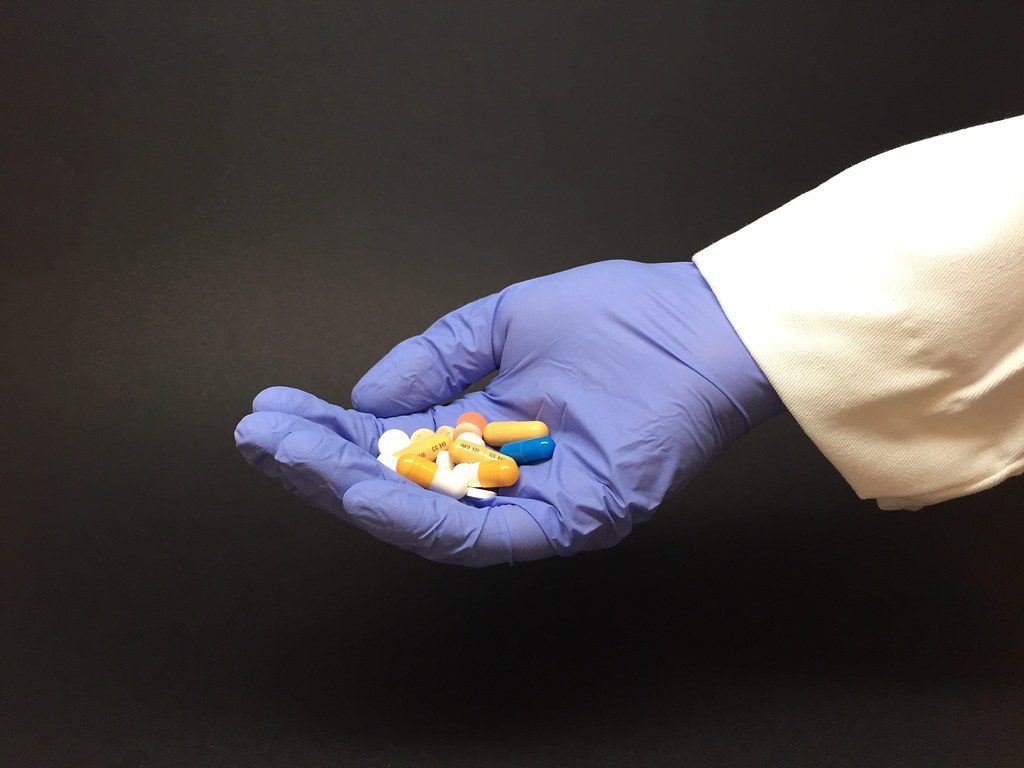
Xevor, Levocetirizine FAQ
- What is Levocetirizine used for?
- What is the difference between Cetirizine and Levocetirizine?
- Which is better Levocetirizine or Cetirizine?
- Does Levocetirizine cause weight gain?
- Are Levocetirizine and Cetirizine the same?
- Are Levocetirizine and Loratadine the same?
- Are Levocetirizine and Xyzal the same?
- Are Levocetirizine drowsy?
- What are Levocetirizine Dihydrochloride tablets used for?
- Are Zyrtec and Levocetirizine the same?
- Are Bilastine and Levocetirizine same?
- Can Levocetirizine be used for cough?
- Can Levocetirizine make you sleepy?
- Can Levocetirizine be used in pregnancy?
- Can Levocetirizine be used for itching?
- Can Levocetirizine be used for sore throat?
- Can Levocetirizine be taken in the morning?
- Can Levocetirizine be used for cold?
- Can Levocetirizine cause sleep?
- Can Levocetirizine cause weight gain?
- Can Levocetirizine be taken during pregnancy?
- Can Levocetirizine taken twice a day?
- Can Levocetirizine be taken daily?
- Can Levocetirizine and Cefixime be taken together?
- Can Levocetirizine be used for skin allergy?
- How Levocetirizine works?
- How Levocetirizine Dihydrochloride works?
- How Levocetirizine works in cold?
- Levocetirizine how long does it take to work?
- What does Levocetirizine treat?
- Levocetirizine what type of drug?
- When does Levocetirizine start to work?
- When is Levocetirizine taken?
- Where is Levocetirizine metabolized?
- Who cannot take Levocetirizine?
- Who should take Levocetirizine?
- Levocetirizine which class of drug?
- Why Levocetirizine dihydrochloride is used?
- Why Levocetirizine is not working?
- Why Levocetirizine tablet is used?
- Why Levocetirizine cause sleep?
- Why Levocetirizine is better than cetirizine?
- Why Levocetirizine is used instead of Cetirizine?
- Why Levocetirizine makes me sleepy?
- Why Levocetirizine cause sedation?
- Will Levocetirizine make you sleepy?
- Will Levocetirizine help with hives?
- Will Levocetirizine cause drowsiness?
- Will Levocetirizine make you gain weight?
- Will Levocetirizine lower blood pressure?
- Will Levocetirizine cause diarrhea?
- Can Levocetirizine use for cold?
- Can Levocetirizine be used for allergy?
- Can Levocetirizine be used for cough?
- Can Levocetirizine cause drowsiness?
What is Levocetirizine used for?
Levocetirizine is mainly utilized for alleviating allergy symptoms like a runny nose and itchy eyes. It is also prescribed for chronic hives to lessen itching and the visibility of hives, in the body.
What is the difference between Cetirizine and Levocetirizine?
The drug Cetirizine consists of two mirror image forms, in a mixture; however Levocetirizine is the enantiomer that is more potent and may require lower doses for the same impact while potentially causing fewer side effects, in certain patients.
Which is better Levocetirizine or Cetirizine?
Levocetirizine is often seen as potent, at doses and with less drowsiness in certain people; nonetheless the decision hinges on how the patient reacts to it and factors like tolerance and cost since both medications are effective, for treating allergies.
Does Levocetirizine cause weight gain?
Weight increase isn't an outcome of taking Levocetirizine; however some people might notice an uptick, in appetite or minor changes in weight during usage of the medication.If there is an increase in weight observed after using Levocetirizine it is advisable to consult with a professional, for guidance and support.
Are Levocetirizine and Cetirizine the same?
Both are closely connected but not exactly the same, in composition; Cetirizine consists of both inactive enantiomers whereas Levocetirizine comprises the active form which allows it to target its effect more specifically.
Are Levocetirizine and Loratadine the same?
Levocetirizine and Loratadin are antihistamines used to manage allergies; however; Loratadin is generally considered sedating compared to Levocetirizine which might offer quicker and more effective relief, for certain individuals who are affected by allergies.
Are Levocetirizine and Xyzal the same?
Xyzal is actually the brand name, for Levocetirizine; they both have the active ingredient and produce the same effects.
Are Levocetirizine drowsy?
Levocetirizine falls into the category of drowsy antihistamines; however some people might feel slightly sleepy when taking higher doses or mixing it with other sedatives.
What are Levocetirizine Dihydrochloride tablets used for?
Levocetirizine dihydrochloride tablets are prescribed for managing rhinitis, like hay fever and year round allergies and chronic idiopathic urticaria ( rash).
Are Zyrtec and Levocetirizine the same?
The medication Zyrtec includes Cetirizine as its ingredient; Cetirizine is the precursor compound, to Levocetirizine. Differs slightly, from it since Levocetirizine is the more potent form of Cetirizine.
Are Bilastine and Levocetirizine same?
Bilastine and Levocetirizine belong to the category of second generation antihistamines; though they both combat allergies their variations lie in their structure and metabolism well as how individual patients respond to them.
Can Levocetirizine be used for cough?
Levocetirizine is typically not prescribed specifically for cough relief; however it may offer some assistance, in alleviating cough symptoms triggered by allergies or postnasal drip than those stemming from infections or other respiratory issues.
Can Levocetirizine make you sleepy?
Some people may experience drowsiness, from Levocetirizine; however it is usually sedating than older antihistamines. Individual sensitivity, to the medication can differ between individuals.
Can Levocetirizine be used in pregnancy?
Levocetirizine might be considered safe during pregnancy if the advantages outweigh the risks; however it is recommended to use it under guidance as there is limited safety data available, for its use, in pregnancy.
Can Levocetirizine be used for itching?
Levocetirizine is known to be quite effective, in alleviating itchiness from allergies and chronic hives which makes it a popular option for skin related allergy symptoms, among individuals.
Can Levocetirizine be used for sore throat?
Levocetirizine isn't designed for treating throats though if the sore throat is due, to allergies it could help ease symptoms by reducing nasal and throat irritation associated with allergies.
Can Levocetirizine be taken in the morning?
Levocetirizine is suitable, for morning consumption; however some individuals opt to take it at night to mitigate drowsiness effects. Though timing adjustments can be tailored according to reactions and preferences.
Can Levocetirizine be used for cold?
Levocetirizine does not work on the cold caused by viruses; however it might help alleviate allergy symptoms that are similar, to cold symptoms, like sneezing or a runny nose.
Can Levocetirizine cause sleep?
Levocetirizine usually doesn't cause drowsiness leading to sleep; however it might result in drowsiness, for people that could create a sense of relaxation or sleepiness in them.
Can Levocetirizine cause weight gain?
Weight gain is not an issue, with Levocetirizine medication usage according to reports; although there have been some instances of increased appetite or minor weight fluctuations observed in a few cases which are not classified as standard side effects of the drug.
Can Levocetirizine be taken during pregnancy?
It is advisable to use Levocetirizine during pregnancy upon a doctors recommendation due, to limited evidence regarding its safety concerns; it is crucial to conduct a risk benefit assessment, in some cases.
Can Levocetirizine taken twice a day?
Doctors typically advise taking Levocetirizine because of its extended period of effectiveness; unless directed otherwise by a physician it is not common practice to take it twice a day.
Can Levocetirizine be taken daily?
Levocetirizine is suitable, for consumption as advised by a healthcare professional and can be safely used over a period, for managing chronic allergy issues under supervision.
Can Levocetirizine and Cefixime be taken together?
It is safe to take Levocetirizine and Cefixime since they do not show any interactions, with each other according to medical experts; nonetheless it's always best to consult a healthcare provider for guidance when using multiple medications simultaneously in case of potential interactions, with other drugs.
Can Levocetirizine be used for skin allergy?
Levocetirizine works well in treating skin allergies, like hives and allergic rashes by decreasing itching and redness while also reducing the appearance of hives.
How Levocetirizine works?
Levocetirizine functions, by inhibiting histamine receptors to halt histamines role in triggering allergy symptoms such, as sneezing, nasal discharge, itching, watery eyes, and skin responses
How Levocetirizine Dihydrochloride works?
Levocetirizine hydrochloride functions, by hindering H₁ histamine receptors to inhibit histamine binding. The onset of allergic reactions such as sneezing and itching along with symptoms, like watery eyes and runny nose typically associated with allergies.
How Levocetirizine works in cold?
Levocetirizine doesn't cure the infection, for a cold; however it can help alleviate symptoms like a runny nose and watery eyes that are aggravated by allergic reactions such, as sneezing.
Levocetirizine how long does it take to work?
Levocetirizine usually starts to take effect an hour after being taken and reaches its peak effectiveness within 2 to 3 hours, after ingestion.. Relief from symptoms can often be felt for, up to 24 hours afterwards.
What does Levocetirizine treat?
Levocetirizine helps with rhinitis, for both perennial allergies and also treats chronic idiopathic urticaria (persistent hives). It alleviates symptoms such, as sneezing, itchiness nose and skin rashes.
Levocetirizine what type of drug?
Levocetirizine functions, as an antihistamine, by acting as a second generation H₁ receptor blocker.
When does Levocetirizine start to work?
Levocetirizine typically begins to take effect within an hour and provides symptom relief gradually over the course of hours while lasting for the entire day.
When is Levocetirizine taken?
People typically take Levocetirizine a day at a time daily. Whether in the morning or evening; however evenings are often preferred if drowsiness is an issue.
Where is Levocetirizine metabolized?
The body mostly eliminates Levocetirizine without change, through the kidneys than the liver; hence kidney function plays a crucial role, in determining the dosage required for administration.
Who cannot take Levocetirizine?
Individuals, with kidney issues or a strong allergic reaction, to Levocetirizine or Cetirizine should refrain from using it; extra care is advised for nursing mothers and children under six months old.
Who should take Levocetirizine?
Levocetirizine is an option, for people, with rhinitis or chronic hives who need to manage symptoms on a daily basis effectively.
Levocetirizine which class of drug?
Levocetirizine is categorized as a second generation antihistamine that works by blocking H₁ receptors in the body.
Why Levocetirizine dihydrochloride is used?
Levocetirizine dihydrochloride is commonly utilized to relieve symptoms related to allergies and chronic urticaria by inhibiting histamine functions within the body.
Why Levocetirizine is not working?
Levocetirizine might not be effective if the symptoms stem from histamine related issues or if the dosage is inadequate or, in cases where symptoms are severe and need more extensive treatment options.
Why Levocetirizine tablet is used?
Levocetirizine tablets are commonly utilized for the management of allergies such, as hay fever and hives, in a manner.
Why Levocetirizine cause sleep?
Consumers should be aware that Levocetirizine might induce drowsiness, in individuals as it has the ability to penetrate the blood brain barrier to some extent; its effects in causing drowsiness are generally less, than those of older antihistamines
Why Levocetirizine is better than cetirizine?
Some patients may find levocetirizine favorable due, to its composition, with the active enantiomer which can enhance potency and be better tolerated even at lower doses.
Why Levocetirizine is used instead of Cetirizine?
Levocetirizine could be an alternative, to Cetirizine, for patients who have side effects or better symptom management with the active enantiomer.
Why Levocetirizine makes me sleepy?
Some people might feel drowsy when taking Levocetirizine because it has properties that affect the central nervous system despite being a newer type of antihistamine.
Why Levocetirizine cause sedation?
In some people who're sensitive, to it and even though its usually sedating than older medications Levocetirizine can still cause drowsiness by affecting histamine receptors in the brain.
Will Levocetirizine make you sleepy?
Will Levocetirizine help with hives?
Levocetirizine works well in managing hives by decreasing itching and redness while also reducing the occurrence of hives.
Will Levocetirizine cause drowsiness?
Levocetirizine might lead to drowsiness, in people; however it is less sedating compared to numerous other antihistamines.
Will Levocetirizine make you gain weight?
Levocetirizine typically doesn't cause weight gain as a side effect; however occasional shifts, in appetite might occur in instances.
Will Levocetirizine lower blood pressure?
Levocetirizine doesn't have any impact, on blood pressure. Isn't prescribed for heart related issues, in the system.
Will Levocetirizine cause diarrhea?
Diarrhea is an occurrence, as an effect of Levocetirizine although it can happen in individuals who are sensitive, to it.
Can Levocetirizine use for cold?
Levocetirizine doesn't cure infections. It might help alleviate allergy symptoms like sneezing or a runny nose when experiencing a cold episode.
Can Levocetirizine be used for allergy?
Levocetirizine is commonly prescribed to alleviate symptoms of rhinitis and chronic urticaria by reducing allergy symptoms.
Can Levocetirizine be used for cough?
Levocetirizine isn't a cough remedy; however it could provide relief if the cough is connected to allergies or postnasal drip.
Can Levocetirizine cause drowsiness?
Levocetirizine might lead to drowsiness, in individuals; however the likelihood is reduced when compared to older antihistamines.

